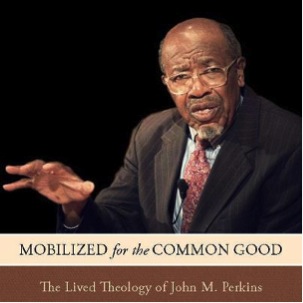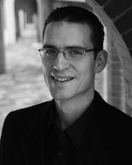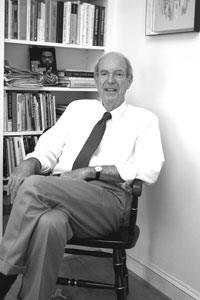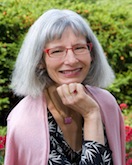 We are pleased to announce the forthcoming publication of Mobilized for the Common Good: The Lived Theology of John M. Perkins, edited by Peter Slade, Charles Marsh, and Peter Goodwin Heltzel and published by University Press of Mississippi.
We are pleased to announce the forthcoming publication of Mobilized for the Common Good: The Lived Theology of John M. Perkins, edited by Peter Slade, Charles Marsh, and Peter Goodwin Heltzel and published by University Press of Mississippi.
Mobilized for the Common Good is based on papers and exchanges of the 2009 Spring Institute for Lived Theology, “American Evangelicalism and the Practices of Peace: The Lived Theology of John M. Perkins.” With contributions from theologians, historians, and activists, this book seeks to understand John M. Perkins’s life and work in its theological and historical context. It contends that Perkins ushered in a paradigm shift in twentieth-century evangelical theology that continues to influence a growing movement of Christian community development projects and social justice activists today.
The impetus for this project came from the desire to explore further the contributions of John Perkins, who has received surprisingly little attention from historians of modern American religious history and from theologians concerned with questions of race, justice, and reconciliation. The book project grew from the rich interdisciplinary conversations that took place at SILT 2009 as participants considered the significance of Perkins’s life and work. We are delighted to work with the scholars, theologians, and ministers who have made contributions toward this important undertaking, including those listed here:
- Mae Cannon, Executive Pastor of Hillside Covenant Church, Walnut Creek, California
- Noel Castellanos, Executive Director, Christian Community Development Association
- Lisa Sharon Harper, Executive Director, New York Faith and Justice
- Paul Louis Metzger, Director of the Institute for the Theology of Culture: New Wine, New Wineskins and Professor of Christian Theology and Theology of Culture, Multnomah School of the Bible
- A. G. Miller, Professor of Religion, Oberlin College
- Lowell Noble, Emeritus Professor of Sociology and Anthropology, Spring Arbor University
- Ted Ownby, Director of the Center for Southern Culture and Professor of History and Southern Studies, University of Mississippi
- Soong-Chan Rah, Milton B. Engebretson Assistant Professor of Church Growth and Evangelism, North Park Theological Seminary
- Chris Rice, Co-Director, Duke Divinity School Center for Reconciliation
- Cheryl J. Sanders, Senior Pastor of the Third Street Church of God in Washington, D.C., and Professor of Christian Ethics at the Howard University School of Divinity
- Ron Sider, President, Evangelicals for Social Action, Director of the Sider Center on Ministry & Public Policy and Professor of Theology, Holistic Ministry, and Public Policy at Palmer Theological Seminary
- Christian T. Collins Winn, Assistant Professor of Historical and Systematic Theology, Bethel University



